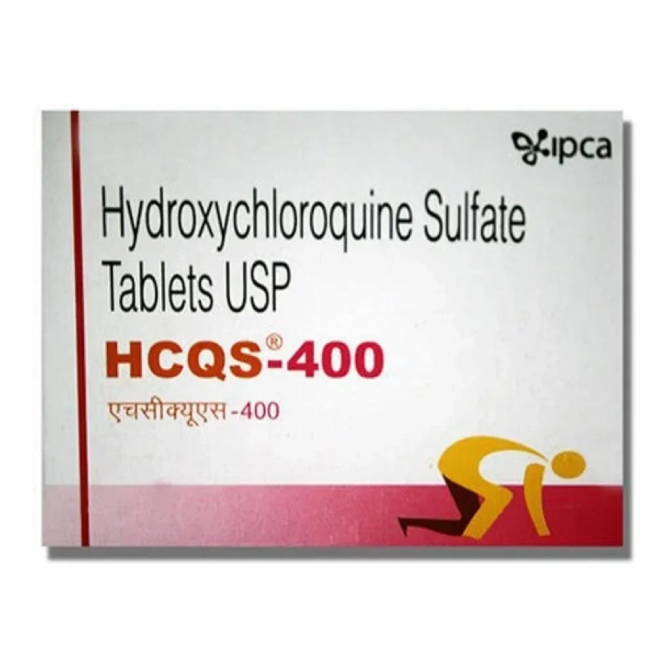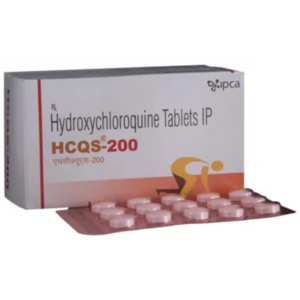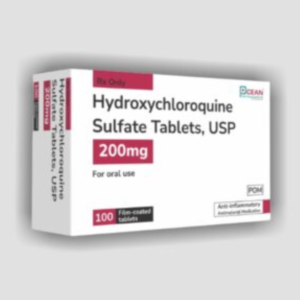Hydroxychloroquine 400mg Tablets are an antimalarial medication also known for its immunomodulatory properties, primarily used for the prevention and treatment of malaria and for managing autoimmune diseases such as rheumatoid arthritis and systemic lupus erythematosus (SLE). Hydroxychloroquine belongs to the 4-aminoquinoline class of drugs and is effective in reducing inflammation and modulating immune system activity.
Indications:
Hydroxychloroquine is indicated for:
- Malaria: Used for both the prevention and treatment of malaria caused by Plasmodium species, especially in regions where chloroquine resistance is a concern.
- Rheumatoid Arthritis: Aids in alleviating symptoms such as pain and swelling in adults.
- Systemic Lupus Erythematosus (SLE): Effective in managing flares and decreasing disease activity in patients with lupus.
Dosage and Administration:
- For Malaria Prevention: The typical dosage is 400 mg (one 400 mg tablet) once weekly, starting 1-2 weeks before potential exposure to malaria and continuing for 4 weeks after leaving the endemic area.
- For Acute Malaria Treatment: A loading dose may be administered, followed by a tailored dosing schedule based on weight and clinical guidelines.
- For Rheumatoid Arthritis and SLE: The usual starting dose is 400-600 mg daily (one to two 400 mg tablets), with adjustments based on the patient’s clinical response.
- Hydroxychloroquine should be taken with food or milk to reduce gastrointestinal side effects.
Contraindications:
- Hypersensitivity to hydroxychloroquine or any of its components.
- Patients with existing retinal or visual field changes related to previous use of 4-aminoquinolines.
Precautions:
- Ophthalmic Monitoring: Regular eye examinations are crucial due to the potential risk of retinal toxicity, particularly with long-term use.
- Cardiac Considerations: Caution is advised in patients with a history of arrhythmias or those taking other medications that may prolong the QT interval.
- Pregnancy and Lactation: Use during pregnancy and breastfeeding should be discussed with a healthcare provider to assess risks and benefits.
Side Effects:
Common side effects may include:
- Nausea and vomiting
- Diarrhea
- Stomach cramps
- Dizziness
- Headache
Serious side effects (seek immediate medical attention if these occur):
- Changes in vision (e.g., blurred vision, difficulty seeing)
- Severe skin reactions (e.g., rash, blistering)
- Muscle weakness or pain
- Symptoms of liver toxicity (e.g., jaundice, dark urine)
Drug Interactions:
- Hydroxychloroquine may interact with other medications, particularly those affecting heart rhythm. Inform your healthcare provider of all medications, supplements, and herbal products being taken to avoid potential interactions.
Storage:
- Store at room temperature (15-30°C or 59-86°F) in a dry place, away from direct light and moisture.
- Keep out of reach of children.
Packaging:
Hydroxychloroquine 400mg Tablets are typically available in blister packs or bottles, with quantities based on the prescribed treatment regimen.



Reviews
There are no reviews yet.